
Find Help
More Items From Ergsy search
-

What if I disagree with a Universal Credit decision?
Relevance: 100%
-

Applying For Universal Credit
Relevance: 83%
-

What is Universal Credit in the UK?
Relevance: 82%
-

How is Universal Credit paid?
Relevance: 80%
-

Can Universal Credit be stopped or sanctioned?
Relevance: 77%
-

How can I apply for Universal Credit?
Relevance: 75%
-

How is the Universal Credit amount calculated?
Relevance: 74%
-

What is the Universal Credit helpline number?
Relevance: 73%
-

Can I apply for Universal Credit if I am self-employed?
Relevance: 71%
-

Who can apply for Universal Credit?
Relevance: 71%
-

Are there any deductions from Universal Credit?
Relevance: 71%
-

Government Announces Increase in Universal Credit Payments Ahead of Winter
Relevance: 69%
-

Does Universal Credit cover childcare costs?
Relevance: 68%
-

Universal Credit Adjustments: What Recent Changes Mean for Claimants
Relevance: 65%
-

Can you receive Universal Credit if you are in full-time education?
Relevance: 64%
-

What documents are required to apply for Universal Credit?
Relevance: 64%
-

What work-related requirements exist for Universal Credit claimants?
Relevance: 62%
-

How long does it take to receive the first Universal Credit payment?
Relevance: 62%
-
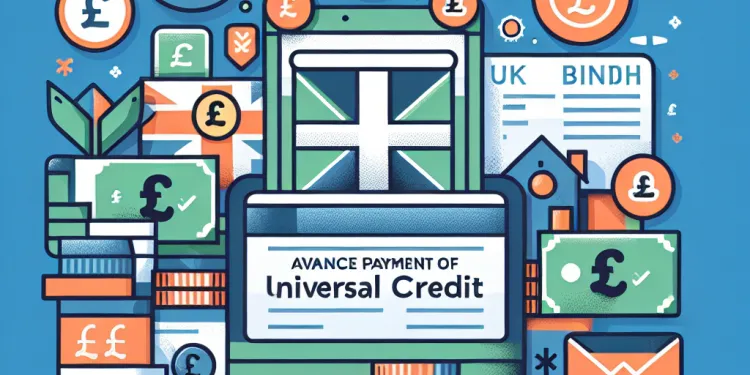
What is an advance payment of Universal Credit?
Relevance: 54%
-

High Court Ruling on Universal Credit 'Unlawful' Cap Pending
Relevance: 50%
-

Are there changes expected for tax credits in April 2026?
Relevance: 43%
-

Can first aid courses be applied for college credit?
Relevance: 39%
-
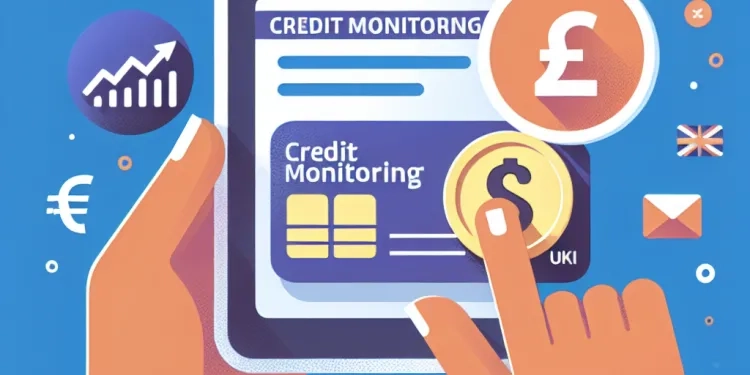
What is credit monitoring?
Relevance: 38%
-
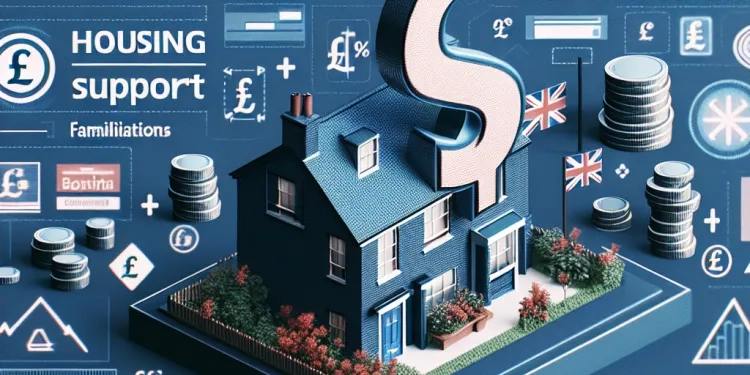
Is housing support included in Universal Credit?
Relevance: 38%
-
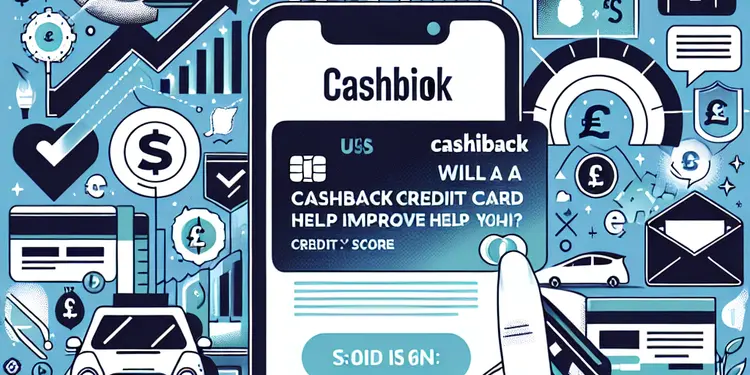
Will a cashback credit card help improve my credit score?
Relevance: 37%
-

Is a cashback credit card right for me?
Relevance: 36%
-

Can decisions made by the tribunal be appealed?
Relevance: 35%
-

What happens if I have a credit on my account?
Relevance: 35%
-

Will switching banks affect my credit score?
Relevance: 35%
-

Can I appeal a court's eviction decision?
Relevance: 35%
-

Can eviction affect my credit score?
Relevance: 35%
-

Can the decision to leave WHO be reversed?
Relevance: 34%
-
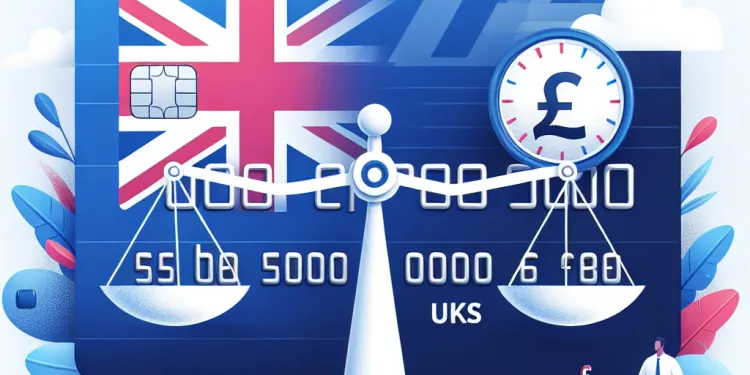
What is a Balance Transfer Credit Card?
Relevance: 34%
-
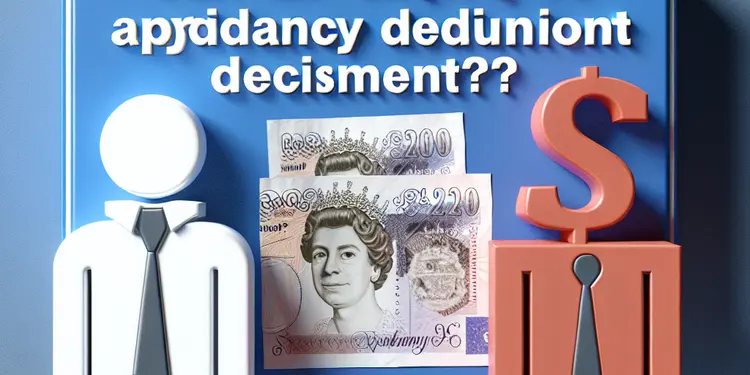
Can an employee appeal a redundancy decision?
Relevance: 34%
-

Credit Union tour of Wales
Relevance: 34%
-

What is credit card fraud?
Relevance: 34%
-

What is a cashback credit card?
Relevance: 34%
-

Can the Attorney General override a court decision?
Relevance: 34%
-

What are the benefits of a balance transfer credit card?
Relevance: 34%
-

What was the global reaction to the US's decision to leave WHO?
Relevance: 33%
Understanding Universal Credit Decisions
Universal Credit is a crucial welfare benefit in the UK designed to support individuals and families with their living costs. However, there may be times when you disagree with a decision made regarding your Universal Credit claim. It’s essential to know the steps you can take to address any issues effectively.
First Steps: Mandatory Reconsideration
If you believe a Universal Credit decision is incorrect, the initial step is to ask for a ‘Mandatory Reconsideration.’ This procedure entails a request for the Department for Work and Pensions (DWP) to review their decision again. It is imperative to submit this request within one month from the date of the decision notification. To initiate the process, contact the DWP through your Universal Credit online account, via phone, or by writing a letter. Clearly state why you disagree with the decision and provide any additional evidence or information to support your case.
What Happens During a Mandatory Reconsideration?
During the reconsideration process, a different decision maker within the DWP will re-evaluate your claim, examining any new evidence or information provided. It’s important to compile all relevant documents and evidence that can support your position. The DWP may contact you for further information if needed. Once they have reassessed your claim, you will receive a Mandatory Reconsideration Notice detailing their final decision.
Appealing to a Tribunal
If you are still dissatisfied with the outcome of the Mandatory Reconsideration, you have the right to appeal to an independent tribunal. It is advisable to file the appeal within one month of receiving the Mandatory Reconsideration Notice. The appeal is submitted to the Her Majesty's Courts and Tribunals Service (HMCTS) rather than directly to the DWP. You can start your appeal online or by using the SSCS1 form. The tribunal is an independent panel that will consider your case and make a judgement.
Preparing for the Tribunal
Careful preparation is crucial for a successful tribunal appeal. Gather and organize all supporting documents, including the Mandatory Reconsideration Notice, your initial rejection letter, any evidence previously submitted, and any new information you wish to present. Assistance from advice services like Citizens Advice or legal aid may be beneficial in preparing for the tribunal hearing. Representation or support from these services can increase the clarity and strength of your case presentation.
The Tribunal Hearing
Tribunal hearings can be attended in person or virtually, depending on your preference and the tribunal’s arrangements. During the hearing, you will be given the opportunity to present your case, and the panel may ask questions for clarification. Decision letters outlining the tribunal’s verdict are usually issued shortly after the hearing. The tribunal’s decision is binding, meaning the DWP must comply with the outcome.
Final Considerations
Disagreeing with a Universal Credit decision can be a daunting process, but understanding your options and knowing the steps to challenge the decision can help protect your rights. Ensure you adhere to all specified timelines and seek advice when needed to navigate the appeal process effectively.
Understanding Universal Credit Decisions
Universal Credit is money from the government to help people in the UK. It helps with living costs for people and families. Sometimes, you might not agree with a decision about your Universal Credit. It’s important to know what you can do if this happens.
First Steps: Asking for a New Look
If you think a Universal Credit decision is wrong, you can ask for a 'Mandatory Reconsideration.' This means you ask the Department for Work and Pensions (DWP) to look at their decision again. You need to ask for this within one month of getting the decision letter. You can do this by logging into your Universal Credit online account, by phone, or by writing a letter. Explain clearly why you disagree and include any extra evidence you have.
What Happens During a Mandatory Reconsideration?
When you ask for a reconsideration, a different person at the DWP will look at your claim again. They will check any new information or evidence you give them. Make sure to send any papers or evidence that can help your case. The DWP might contact you if they need more details. After they check everything, you’ll get a letter called a Mandatory Reconsideration Notice, telling you their final decision.
Appealing to a Tribunal
If you still disagree after the Mandatory Reconsideration, you can appeal to a tribunal. You should do this within one month of receiving the decision from DWP. The appeal is sent to Her Majesty’s Courts and Tribunals Service (HMCTS), not the DWP. You can start your appeal online or use the SSCS1 form. The tribunal is an independent group that will look at your case and decide.
Preparing for the Tribunal
It’s important to get ready for the tribunal. Collect all your papers, like the Mandatory Reconsideration Notice, the first letter you got, and any evidence you have. You can also get help from places like Citizens Advice or legal aid. They can help you get ready for the tribunal. Having help can make your case clearer and stronger.
The Tribunal Hearing
You can go to the tribunal hearing in person or join online. During the hearing, you can explain your case, and the panel might ask you questions. After the hearing, you will get a letter telling you what the tribunal decided. The tribunal’s decision is final, so the DWP has to accept it.
Final Considerations
It can be scary to disagree with a Universal Credit decision. But if you know your options and what steps to take, you can make sure your rights are protected. Make sure to follow the deadlines and ask for help if you need it.
Frequently Asked Questions
What should I do first if I disagree with a Universal Credit decision?
If you disagree with a Universal Credit decision, the first step is to contact the Department for Work and Pensions (DWP) and ask for a mandatory reconsideration.
What is a mandatory reconsideration?
A mandatory reconsideration is a process where the DWP reviews the decision you disagree with and decides whether to change it.
How long do I have to request a mandatory reconsideration?
You must request a mandatory reconsideration within one month of the date on your decision letter.
Can I request a mandatory reconsideration after one month?
Yes, but you will need to provide a good reason for the delay, such as an illness or an absence from the UK.
How do I request a mandatory reconsideration?
You can request a mandatory reconsideration by contacting the DWP in writing, by phone, or through your online Universal Credit account.
What information should I include in my mandatory reconsideration request?
Include why you think the decision is wrong, any relevant supporting evidence, and your name, address, and National Insurance number.
How long does it take to get a decision on a mandatory reconsideration?
The time it takes can vary, but the DWP aims to respond as soon as possible. You should contact them if you haven't heard back within a reasonable time.
What happens if the mandatory reconsideration does not change the decision?
If the decision remains unchanged, you can appeal to an independent tribunal.
How do I appeal to a tribunal?
To appeal to a tribunal, you need to send the appeal form (SSCS1) and a copy of the mandatory reconsideration notice to HM Courts and Tribunals Service.
What is the deadline to appeal to a tribunal?
The deadline to appeal is usually within one month of the date on the mandatory reconsideration notice.
Can I appeal to a tribunal after the deadline?
Yes, you can appeal late if you have a good reason, but it is up to the tribunal to decide whether to accept your appeal.
Will I continue to receive Universal Credit payments while awaiting the tribunal decision?
Yes, you will continue to receive payments if you meet the eligibility criteria, but the amount may not change until the decision is finalized.
Do I need a solicitor or representative for the tribunal?
It's not necessary to have a solicitor, but you may wish to get free advice or representation from organizations like Citizens Advice.
What can I expect at a tribunal hearing?
At a tribunal hearing, an independent panel will review your case and listen to both sides before making a decision. The hearing can be in person, over the phone, or via video link.
How should I prepare for the tribunal hearing?
Gather all relevant documents, evidence, and any correspondence related to your Universal Credit claim. It's also helpful to prepare a statement outlining your case.
What if I disagree with the tribunal decision?
If you disagree with the tribunal decision, you may be able to appeal to the Upper Tribunal, but only if there was an error of law in the first tribunal's decision.
Is there a cost to appeal to a tribunal?
No, there is no fee for appealing to a tribunal or for any part of the appeals process.
Can I get help with understanding the appeals process?
Yes, you can get free advice and assistance from organizations like Citizens Advice or welfare rights groups.
What happens if I win the tribunal appeal?
If you win, the DWP will usually have to change the decision in your favor and pay any arrears owed to you.
What should I do if my circumstances change during the appeal process?
Inform the DWP and the tribunal of any significant changes in your circumstances, as this could affect your appeal or ongoing entitlement.
What to Do First if You Do Not Agree with Universal Credit Decision?
If you think a Universal Credit decision is wrong, you can ask for it to be looked at again. This is called a "mandatory reconsideration." Here is how you can do it:
- Write a letter or call Universal Credit. Tell them what you disagree with and why.
- Have your National Insurance number ready. This helps them find your details.
- If you need help, you can ask a friend, family member, or a support worker.
- Keep a copy of everything you send to them, like letters or emails.
- You can also use a simple language version to help you understand the information better.
Remember, you must ask for this within one month of the decision date. If you need extra help, you can contact a local advice center or Citizen's Advice.
If you do not agree with a decision about your Universal Credit, the first thing to do is call or write to the Department for Work and Pensions (DWP). Tell them you want them to look at the decision again. This is called asking for a "mandatory reconsideration."
What is a mandatory reconsideration?
A mandatory reconsideration is when you ask to change a decision about benefits. You can ask for this if you think the decision was wrong.
Here is how it works:
- You get a decision about your benefits.
- If you do not agree, you can ask for the decision to be looked at again.
- This is called a mandatory reconsideration.
- An official looks at the decision again to see if it was right or wrong.
You can use a friend or family member to help you ask for a mandatory reconsideration. They can help you write down why you think the decision was wrong.
You can also ask for help from a support group or a charity.
A mandatory reconsideration is when the DWP looks at a decision you don't agree with to see if it should be changed.
How much time do I have to ask for a mandatory reconsideration?
You have 1 month (4 weeks) to ask for a mandatory reconsideration after you get the decision letter.
If you need more time, you can ask, but you need a good reason.
It helps to gather information and get support. You can:
- Ask someone you trust to help you.
- Use a calendar to keep track of the dates.
You need to ask for a mandatory reconsideration within one month from the date on your decision letter.
Can I ask for a mandatory reconsideration after one month?
Yes, you can ask for a mandatory reconsideration after one month. You need to tell them why you are late. It's good to write down your reasons. If you have proof, like a doctor's note, send that too. Try to ask as soon as you can.
For help, you can:
- Ask a friend or family member to help you.
- Use a calendar to remember important dates.
- Speak to someone at a advice center.
Yes, you can, but you need a good reason. For example, if you were sick or not in the UK.
Tips to Help You Understand:
- Ask someone you trust to explain it to you.
- Use simple apps or tools that read text out loud.
- Break down the text and read it slowly, one piece at a time.
How do I ask for a decision to be looked at again?
If you do not agree with a decision, you can ask for it to be looked at again. This is called a mandatory reconsideration.
Here’s how to do it:
- Write a letter or call to say you want them to look at the decision again.
- Make sure you say why you think the decision is wrong.
- Do this within one month of the date on the decision letter.
Getting help:
- Ask someone you trust to help you write the letter.
- You can also talk to a support worker or find advice online.
You can ask the DWP to look at your claim again.
You can ask by writing a letter, making a phone call, or using your online Universal Credit account.
What should I put in my request to look at a decision again?
Say why you think the decision is not right. Share any proof that helps your case. Also, write your name, where you live, and your National Insurance number.
How long will I wait for a mandatory reconsideration decision?
When you ask for a mandatory reconsideration, you want someone to look at a decision again. It might take some time.
You may have to wait a few weeks or even longer. It depends on how complicated things are.
If you find waiting hard, try these ideas:
- Ask someone you trust to help you with your claim.
- Write down questions you have or things you want to remember.
- Use a calendar to track the days you're waiting.
It can be a good idea to call or check online for updates if you are worried.
The time it takes can be different, but the DWP tries to answer quickly. If you do not hear back soon, you should contact them.
What if the decision does not change after a review?
Sometimes, the decision can stay the same after a review. This means they did not change their first answer.
If this happens, don't worry. You can ask someone to help you. Talk to a friend, family member, or a helper you trust.
There is another thing you can do. You can ask for an appeal. This means you want someone else to look at the decision again.
For more help, you can use a support tool or talk to a specialist who knows about these things.
If the decision stays the same, you can ask an independent group to look at it again.
How can I ask a tribunal to look at my case?
If you want to ask a tribunal to look at your case, follow these easy steps:
- Write down what you disagree with. This could be about a decision someone made.
- Fill out a form. You might have to send a form to the tribunal. You can ask someone you trust to help you with this form.
- Send your form and any papers that help your case to the tribunal. This shows them why you need help.
- Wait for a reply. The tribunal will tell you if they can help with your case.
There are people who can help you with this process. You can ask a friend, family member, or advice service for assistance. Remember, you are not alone.
To ask the court for help, you need to do two things. First, fill out a form called SSCS1. Second, send a copy of the paper that says your first try was not accepted. Send both to the HM Courts and Tribunals Service.
When is the last day to ask for a tribunal?
You need to ask for an appeal within one month after you get the mandatory reconsideration notice.
Can I still ask a tribunal for help after the deadline?
If you missed the deadline to ask a tribunal for help, you might still be able to do it. You should talk to someone who knows about tribunals to see what you can do.
Here are some things that can help you:
- Ask a friend or family member to help you understand the steps.
- Use clear and short words when asking for help.
- Write down important dates and information so you don't forget.
- Use a calendar to keep track of deadlines and appointments.
Yes, you can ask to try again even if you are late. You need a good reason. The tribunal will decide if they will let you try again.
Will I still get Universal Credit money while I wait for the court's answer?
Yes, you will keep getting payments if you still qualify. But the amount of money you get might not change until a final decision is made.
Do I need a lawyer for the tribunal?
You don’t have to have a lawyer, but it can help. A lawyer knows the rules and can speak for you. If you don't have one, you can ask someone else to help you, like a friend or family member. They can be your representative and support you during the tribunal.
You don't have to have a lawyer, but you might want to get free help from places like Citizens Advice.
What happens at a tribunal hearing?
A tribunal hearing is a meeting to solve a problem.
Here is what you can expect:
- People listen to you and others about the problem.
- Someone in charge will decide what is fair.
- You can bring someone to help you, like a friend or family member.
- You can use pictures or simple words to explain your side.
- You may have to wait a little before they make a decision.
It can help to write down what you want to say before you go.
If you need help, ask for it.
At a tribunal hearing, a group of people will help decide what happens. They will listen to both sides of the story. The hearing can happen in person, on the phone, or on a video call.
How can I get ready for the tribunal meeting?
Find all the papers and any letters or emails about your Universal Credit claim. It’s a good idea to write down your story about what happened.
What can I do if I don't agree with the tribunal's choice?
If you don't agree with what the tribunal says, you can ask for help. You might want to talk to someone who knows about tribunals, like a lawyer. They can explain what to do next.
You can ask the tribunal to look at the choice again. This is called an 'appeal'. You need to have a good reason to ask for this. The tribunal will tell you how to do it.
Here are some tools that can help:
- Ask a family member or friend: They can help you understand what to do.
- Use simple words: Try to say things in a clear and easy way.
- Take notes: Write down what the tribunal says. This can help you remember.
If you do not agree with what the tribunal decided, you might be able to ask the Upper Tribunal to look at it again. But you can only do this if there was a mistake in the law when the first tribunal made their decision.
Do you have to pay money to ask a tribunal to look at your case again?
Tribunal means a special group of people that helps decide if something is fair.
To find out if it costs money, you can ask someone who knows about tribunals. This could be a teacher, family member, or a helpful person at a support service. You can also check easy websites that help with legal questions.
No, you do not have to pay money to ask a tribunal for help. The whole process is free.
Can I get help with understanding the appeals process?
Do you want help to understand how appeals work?
Here are some things that might help you:
- Ask Someone: Talk to a friend, family member, or teacher who can explain it to you.
- Use a Video: Find a video that explains appeals in simple words.
- Write It Down: Break down each step and write it out simply.
- Use Pictures: Draw pictures or use diagrams to show steps.
Yes, you can get free help and advice from groups like Citizens Advice or welfare rights groups.
What happens if I win the tribunal appeal?
If you win your case, it means the tribunal agrees with you. This is good news!
Here is what might happen next:
- The decision that was made before is changed.
- You might get money you should have had.
- Other things that were not right before might be fixed.
If you need help understanding what to do next:
- Ask someone you trust to explain it to you.
- Use simple apps on a tablet or phone to keep track of things.
- Write down any questions you have and ask a helper.
If you win, the DWP has to change their decision. They will also give you any money they owe you.
What do I do if my life changes during the appeal?
If something changes in your life when you are waiting, tell someone. Things like moving home or a change in money are important. Tell the people helping with your appeal. They need to know.
Here are some tips to help:
- Write down important changes in a notebook.
- Ask a friend or family member for help.
- Use a calendar to remember important dates.
Tell the DWP and the tribunal if anything big in your life changes. This can change your appeal or what help you get.
Useful Links
This website offers general information and is not a substitute for professional advice.
Always seek guidance from qualified professionals.
If you have any medical concerns or need urgent help, contact a healthcare professional or emergency services immediately.
Some of this content was generated with AI assistance. We’ve done our best to keep it accurate, helpful, and human-friendly.
- Ergsy carfully checks the information in the videos we provide here.
- Videos shown by Youtube after a video has completed, have NOT been reviewed by ERGSY.
- To view, click the arrow in centre of video.
- Most of the videos you find here will have subtitles and/or closed captions available.
- You may need to turn these on, and choose your preferred language.
- Go to the video you'd like to watch.
- If closed captions (CC) are available, settings will be visible on the bottom right of the video player.
- To turn on Captions, click settings .
- To turn off Captions, click settings again.
More Items From Ergsy search
-

What if I disagree with a Universal Credit decision?
Relevance: 100%
-

Applying For Universal Credit
Relevance: 83%
-

What is Universal Credit in the UK?
Relevance: 82%
-

How is Universal Credit paid?
Relevance: 80%
-

Can Universal Credit be stopped or sanctioned?
Relevance: 77%
-

How can I apply for Universal Credit?
Relevance: 75%
-

How is the Universal Credit amount calculated?
Relevance: 74%
-

What is the Universal Credit helpline number?
Relevance: 73%
-

Can I apply for Universal Credit if I am self-employed?
Relevance: 71%
-

Who can apply for Universal Credit?
Relevance: 71%
-

Are there any deductions from Universal Credit?
Relevance: 71%
-

Government Announces Increase in Universal Credit Payments Ahead of Winter
Relevance: 69%
-

Does Universal Credit cover childcare costs?
Relevance: 68%
-

Universal Credit Adjustments: What Recent Changes Mean for Claimants
Relevance: 65%
-

Can you receive Universal Credit if you are in full-time education?
Relevance: 64%
-

What documents are required to apply for Universal Credit?
Relevance: 64%
-

What work-related requirements exist for Universal Credit claimants?
Relevance: 62%
-

How long does it take to receive the first Universal Credit payment?
Relevance: 62%
-

What is an advance payment of Universal Credit?
Relevance: 54%
-

High Court Ruling on Universal Credit 'Unlawful' Cap Pending
Relevance: 50%
-

Are there changes expected for tax credits in April 2026?
Relevance: 43%
-

Can first aid courses be applied for college credit?
Relevance: 39%
-

What is credit monitoring?
Relevance: 38%
-

Is housing support included in Universal Credit?
Relevance: 38%
-

Will a cashback credit card help improve my credit score?
Relevance: 37%
-

Is a cashback credit card right for me?
Relevance: 36%
-

Can decisions made by the tribunal be appealed?
Relevance: 35%
-

What happens if I have a credit on my account?
Relevance: 35%
-

Will switching banks affect my credit score?
Relevance: 35%
-

Can I appeal a court's eviction decision?
Relevance: 35%
-

Can eviction affect my credit score?
Relevance: 35%
-

Can the decision to leave WHO be reversed?
Relevance: 34%
-

What is a Balance Transfer Credit Card?
Relevance: 34%
-

Can an employee appeal a redundancy decision?
Relevance: 34%
-

Credit Union tour of Wales
Relevance: 34%
-

What is credit card fraud?
Relevance: 34%
-

What is a cashback credit card?
Relevance: 34%
-

Can the Attorney General override a court decision?
Relevance: 34%
-

What are the benefits of a balance transfer credit card?
Relevance: 34%
-

What was the global reaction to the US's decision to leave WHO?
Relevance: 33%


